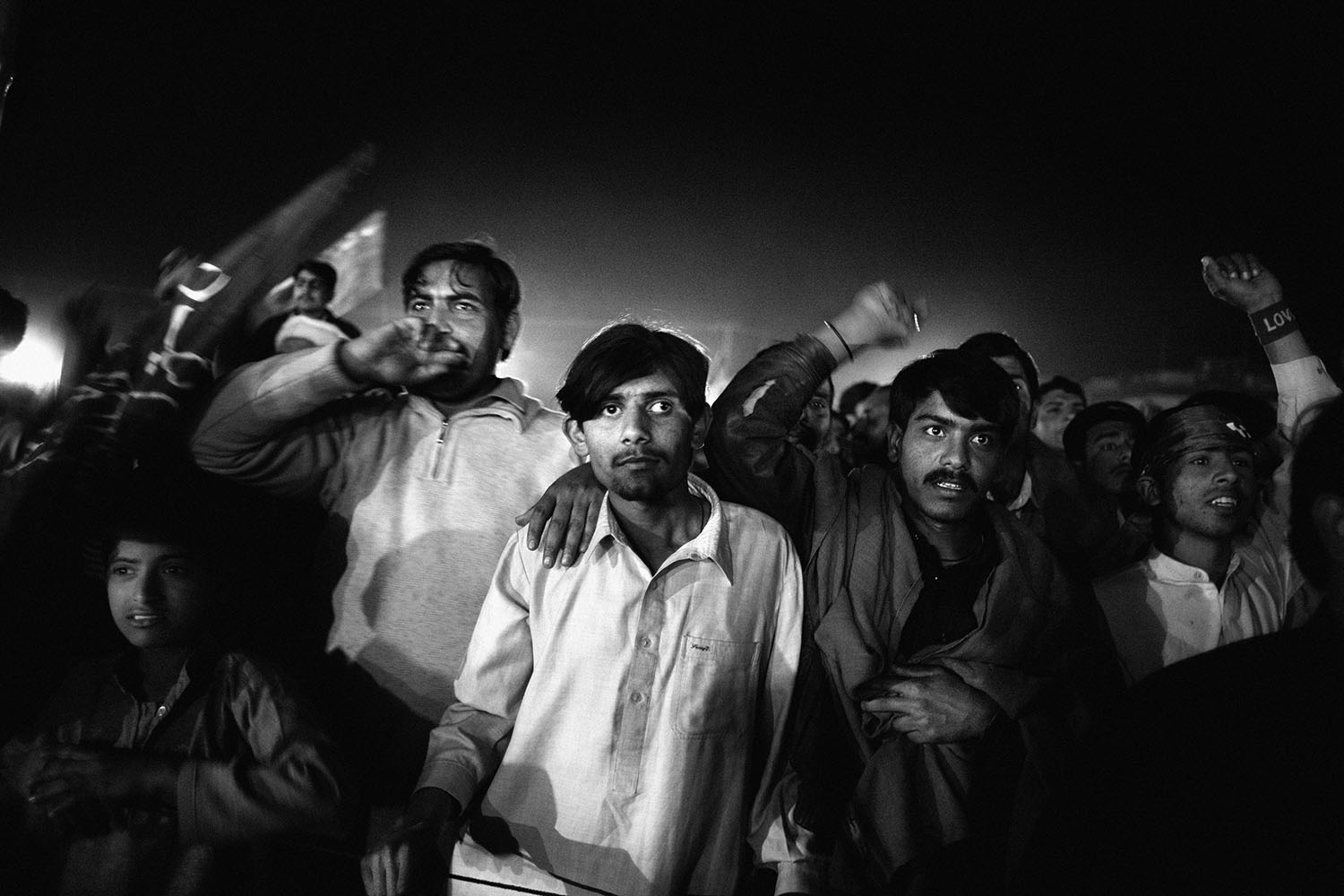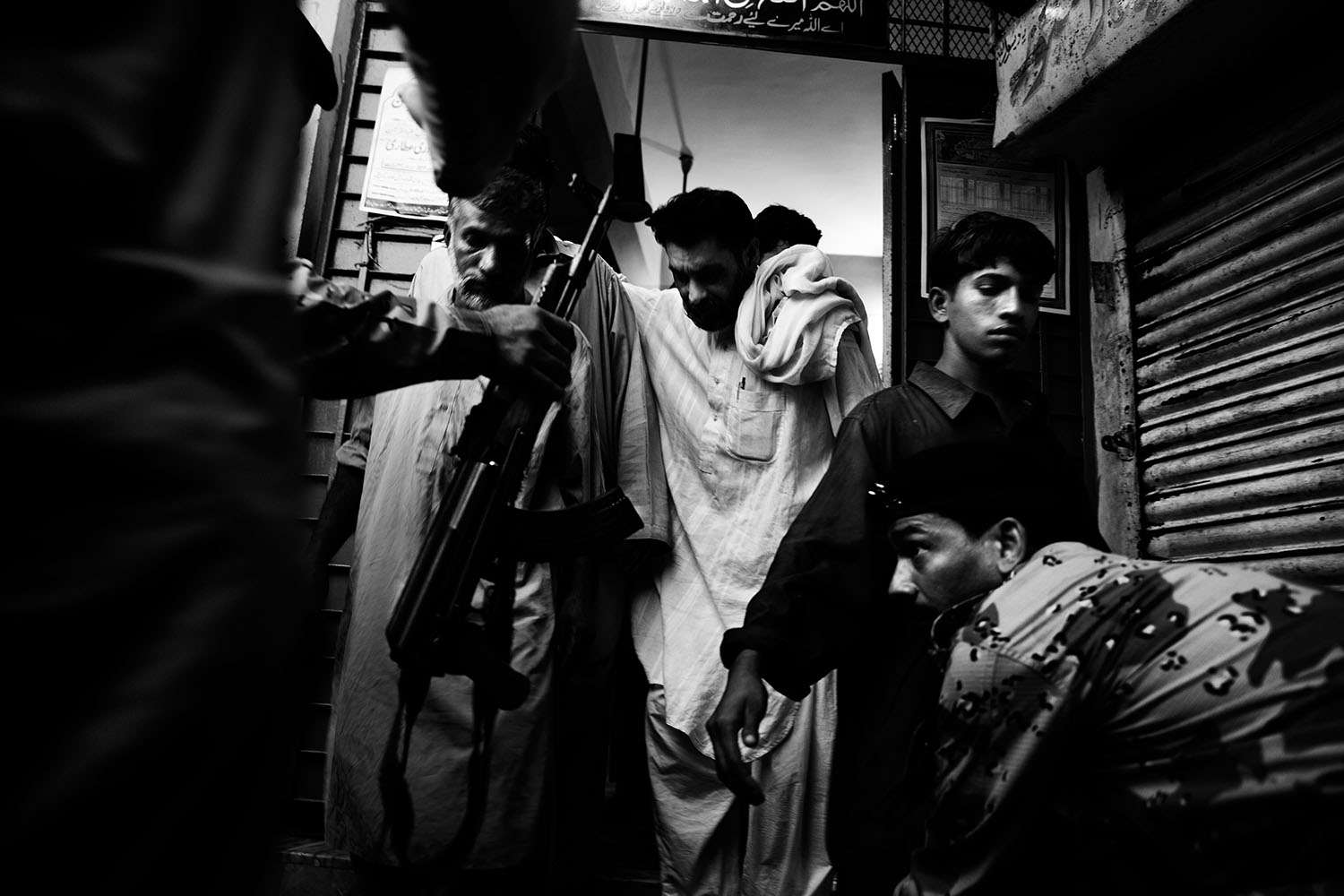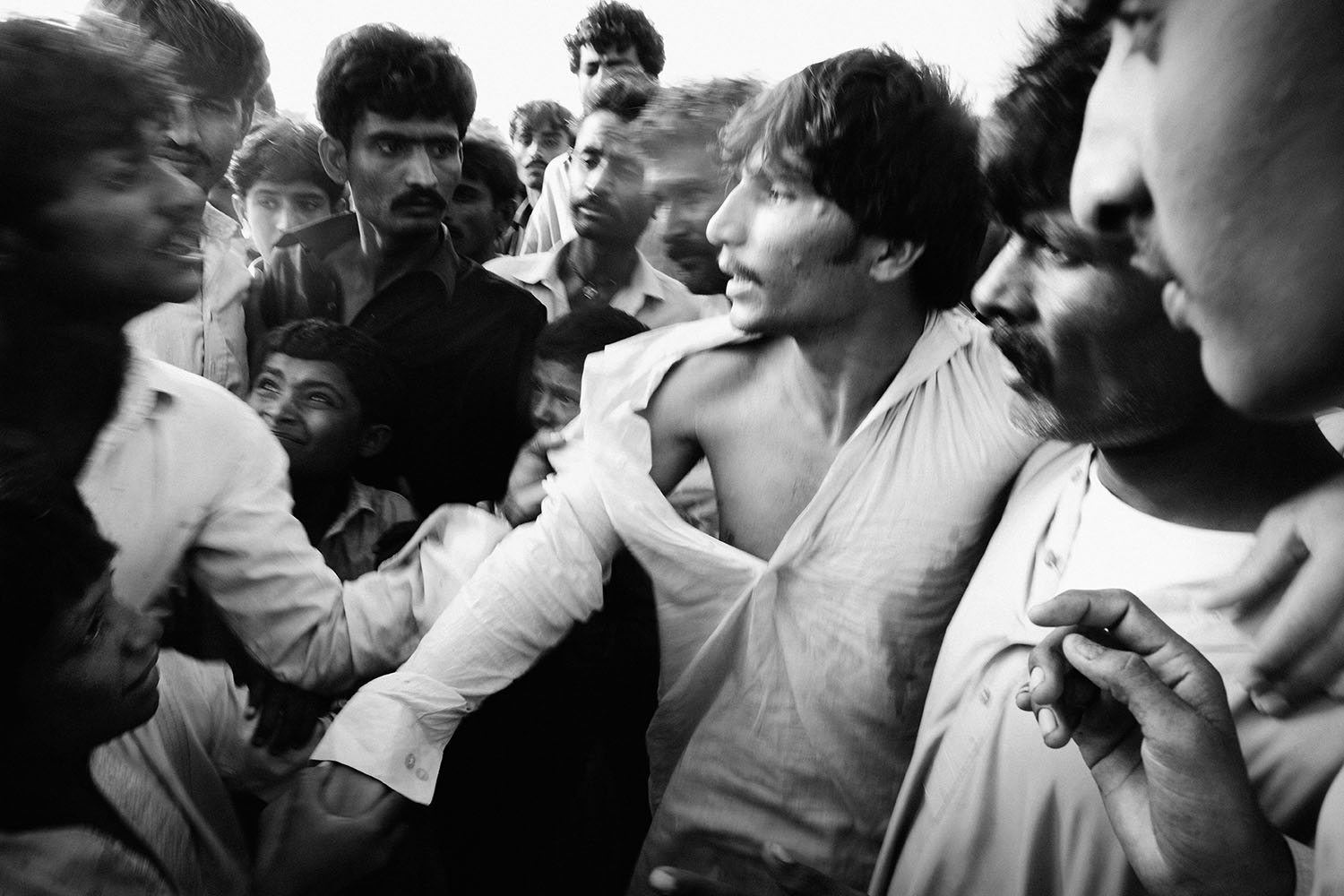There are places to be seen with your own eyes, places and people that deserves a major attention and a deeper perspective.
Some places are, even if very far away from us, inherently linked with everybody’s life, strictly connected with the world history.
So meanwhile mankind looks incapable of understanding the contemporary, we need to conserve traces, details, memories.
To do this, you need to come to terms with time.
It was just after the assassination of Benazir Bhutto that something clicked into my mind becoming aware that Pakistan was the country I had to see in order satisfy my curiosity, to verify, and if you will, to investigate.
During the elections, on Feb 2008, people were excited, full of hope, trustfully looking at their future. You could feel it and smell it.
A strong movement guided by lawyers was riding the wave. They were asking for justice, pushing the new elected government to restore the Chief of Justice Iftikhar Muhammad Chaudhry. People of any age joined it taking part to a march for all the country long.
Finally they succeeded but unfortunately at this stage Asif Ali Zardari, Benazir Bhutto husband, (who’s nickname among the people is “Mr.10%”) was already in power, and he is exactly what Pakistan does not need.
He belongs to the landlord cast which is the leading class in Pakistan, feudal vassals who studied abroad and mostly in UK, they have no real will to use their power to pursue the Pakistani people interests, they do not have a real connection with the culture.
Pakistan today is the result of more than 30 years of “mistakes”, 30 years of democracy failure.
The military were in power for more than half of the country six decades existence; some civil governments were corrupted, some others are corrupted. Corruption is vicious here, this is a strategic land, and to be in power can be such a lucrative opportunity.
Pakistan economy is left undeveloped so that dependence from foreign aids remains an indispensable requirement.
On one hand, if the US wanted a chair around the table against the economic aids, on the other hand, population in Pakistan has to face, in addition to terrorism, an inexorable impoverishment, caused by the tax increase, the energy crisis and the rising prices of the indispensable goods which is a consequence of a new “Value Added Tax” (VAT) imposed by the International Monetary Fund and the World Bank, both threatening to cut the distribution of funds if this new regulation is not applied.
What was a colony before, looks a province now.
In the 80’s, because of the US will, this was the country where the Mujahedeen were trained by Osama Bin Laden in order to help the Afghan resistance against the Russian invaders.
Now, and since 2002, this is the way in used by the NATO supplies in order to reach Afghanistan.
Because of this and more for what was left in between, Pakistan and US history are closely connected since the very beginning, one of the strongest link between two countries in history ever. .
This connection brought to the Army operations in the Swat Valley which started in May 2009 to flesh out the Taliban regime.
The event left displaced more than 3 million people, a number that termed it as the largest humanitarian crisis in recent times.
Government was able to give a shelter to less than one million of them, and too many were left aside roads and canals. These persons coming from a mountain area were not accustomed to the heat and the weakest of them died because of exposure. At the end 750 militants were killed against 800.000 people left homeless.
“Winning the war, but also the peace, in Swat can only be achieved by minimizing civilian’s suffering,” said Brad Adams of Human Rights Watch today.
This sentence shows clearly how far the operation was from this achievement.
It is clear that it is always the people that pay for all the inherent consequences that all the “big games” brings with.
And this is what really matters.
During the last 10 years, the annual death toll from terrorist attacks in Pakistan has risen from 164 in 2003 to 3318 in 2009, with a total of 35,000 Pakistanis killed as of 2010 and a financial cost of $68 billion since 2001. The economy is on knees, the population exhausted.
Pakistan is considered to have had a key role in the start of the war on terror and most probably it will have a main role on its end.
It is the key leading jigsaw piece, the Alfa and the Omega in the story of the war on terror. So many questions, so little answers.
Pakistanis people is entrapped between both external and internal threats.
A war within has started years ago in Karachi, a war that is costing more than 1000 lives per year. This phenomenon labeled as “targeted killings” have been attributed to political, religious and ethnic reasons.
It is a battle for control, the control of a city that is the most important financial hub in the country and at the same time is entry harbor for the Nato supply.
Whoever controls Karachi is of course an important piece in the national political puzzle.
What is happening there is terrifying , people get killed daily, they get killed because they are the target or they get killed by mistake, stores are sent to fire for revenge and curfews became common as the only answer to the spread of fear.
Police and rangers look powerless against this mafia-like battle within.
It is the siege of a people.
From the Great dictator
Greed has poisoned men’s souls; has barricaded the world with hate; has goose-stepped us into misery and bloodshed. We have developed speed, but we have shut ourselves in. Machinery that gives abundance has left us in want. Our knowledge has made us cynical; our cleverness, hard and unkind.
We think too much and we feel too little. More than Machinery we need humanity, more than cleverness we need kindness, gentleness. Without these qualities life will be violent and all will be lost.
Our way of life has failed miserably, most of the money invested in research, is more for destructive purposes than for constructive ones.
More than 2500 people, according to the New American Foundation, have been killed during attacks pursued by Predator drones against supposed dens of rebels in Pakistan. Drones are coming from U.S. Air Bases located on the Afghan border and remotely controlled from California.
This is an example of how technology in warfare have been pushed too far, dehumanizing the already violent act of killing; collateral damage remains frequent.
These raids are not only tied to the repeated massacres that they cause, but, as additional effect, generate also the increase of the terrorist attacks against the population and prime a new vicious circle of violence. Population rage is just one of the consequences.
The victims I met were all civilians, they got injured or they lost their relatives. They came from North Waziristan to meet me and they had such difficult stories to tell. In a moment they lost everything. A 15 years old student who lost one eye, both the legs and all his family, a Journalist who lost his son, a Social Worker who got severely injured and lost his uncle who was father of five children, a driver who lost his wife and two nephews while working.
They had no clue of what was about to happen to their lives, how they could change so drastically.
They are shocked, but angry.
Peaceful people driven into madness.
Only after years of bombings on the soil of an allied nation, in violation of the international laws and many innocent victims, the United Nations are considering the hypothesis to classify them as “war crimes”.
Slowly but safely the links between the two countries have been getting more and more complicated during the last years, (the Raimond Davis and Faisal Shahzad cases are just an example) until when the already weakened relations between Pakistan and US came to a breaking point because of the US operation that claimed to have killed Osama Bin Laden on May 2011.
As a reaction Pakistan Authorities blocked the Nato Supply on their way to Afghanistan for months and more developments are on sight.
The scenario is potentially dreadful and, on a background of apparent, harmonized, desire of disarmament , new and serious reasons of instability are being originated between the two nuclear powers.
































































































































































